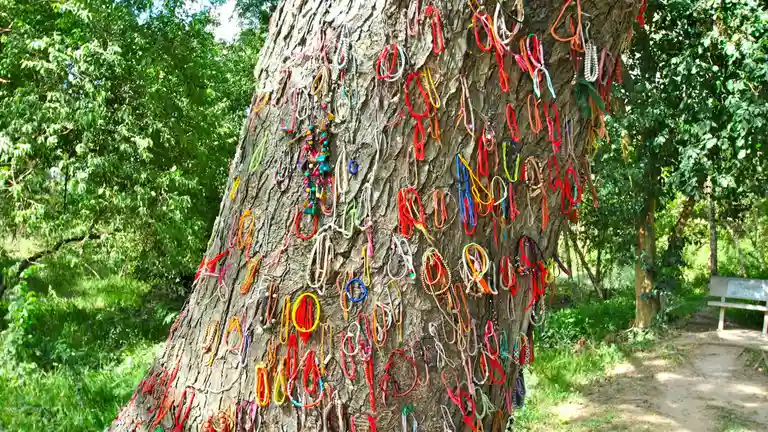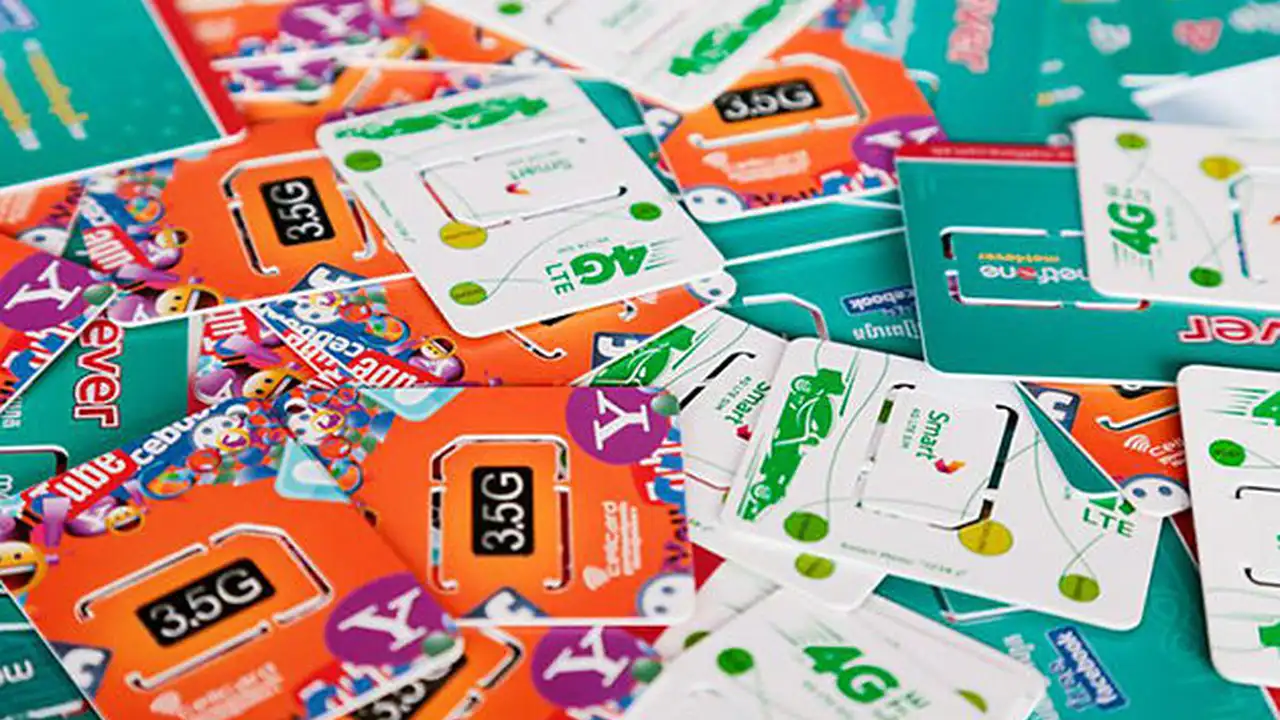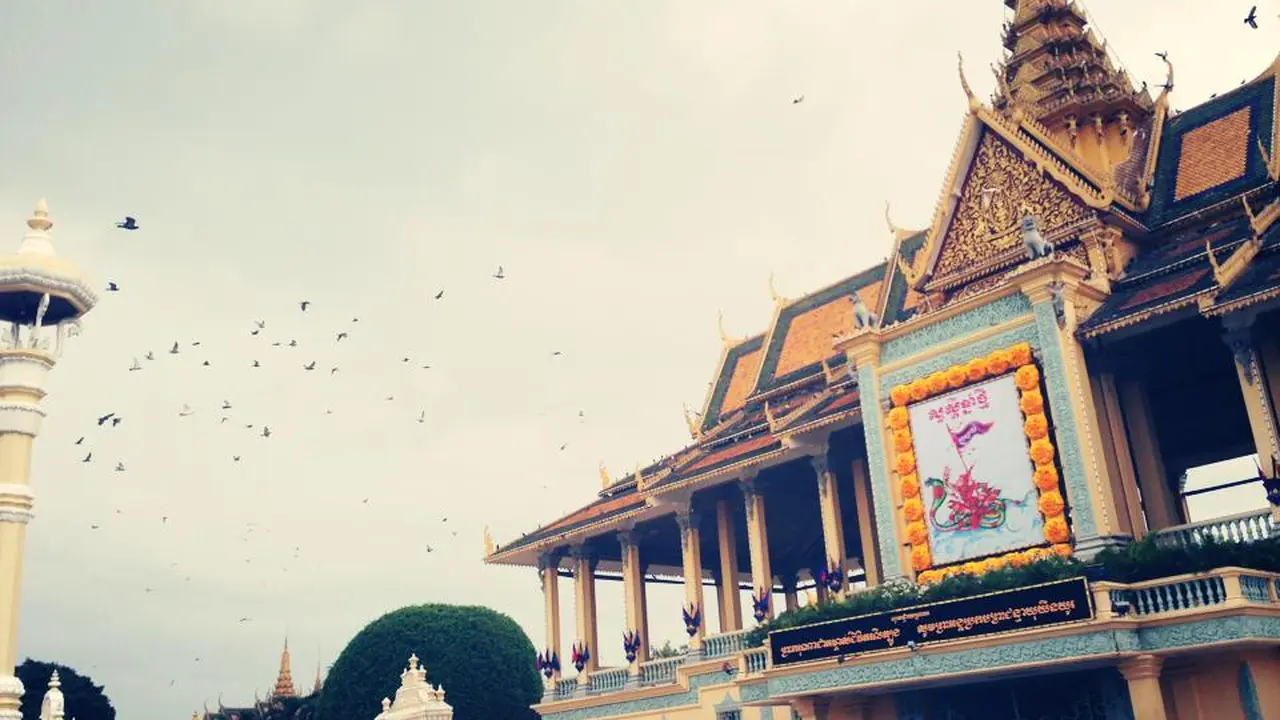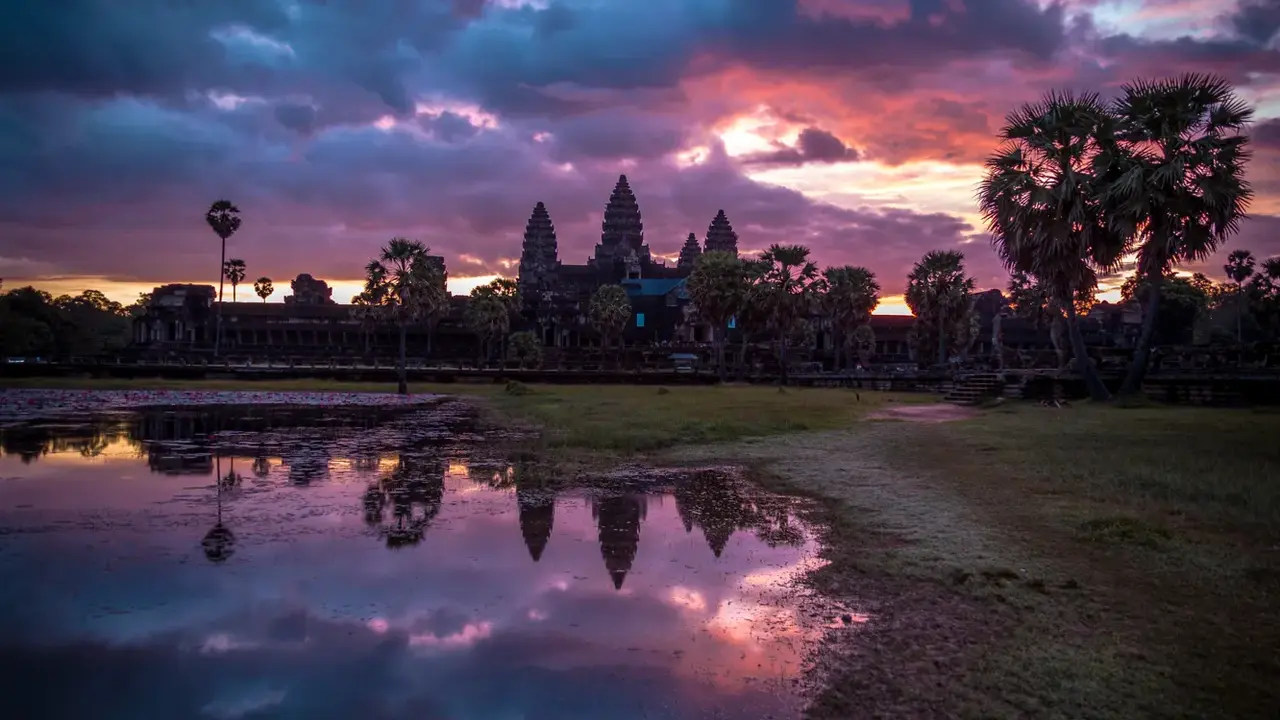Cambodia Independent Travel: A Guide for US Adventurers
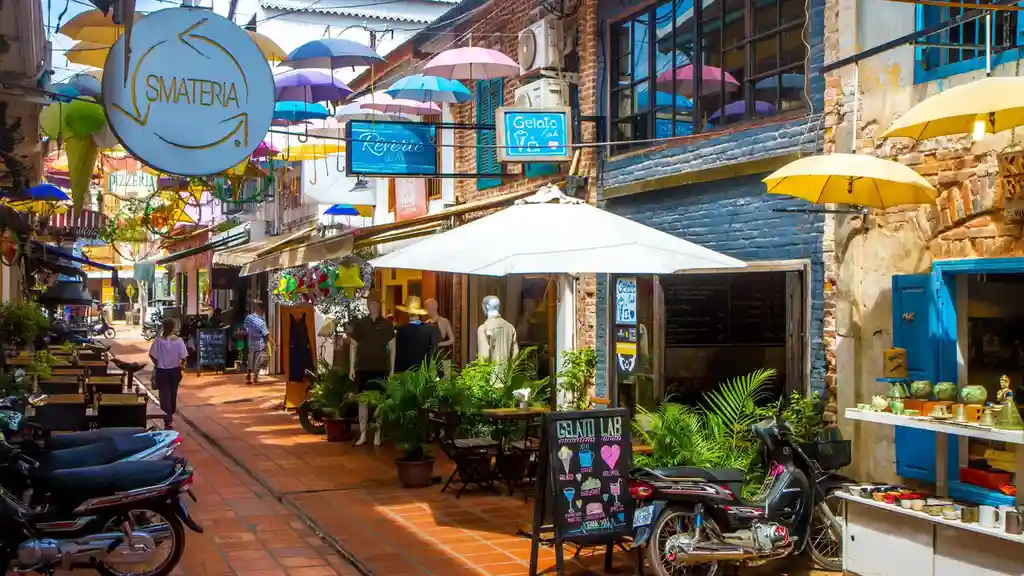
Planning Your Cambodia Trip Essential Pre Trip Preparations
So, you're thinking about backpacking through Cambodia? Awesome choice! Cambodia is a country that’ll smack you in the face with its beauty, history, and downright amazing food. But before you start picturing yourself sipping cocktails on a Koh Rong beach, let’s get down to the nitty-gritty of planning. This isn't your all-inclusive resort vacation; this is independent travel, baby! And that means you're in charge. First things first: passport and visa. Make sure your passport is valid for at least six months after your planned return date. For US citizens, you can get a visa on arrival at the major airports and land borders. It's usually around $30 USD, and it saves you the hassle of applying beforehand. Speaking of money, Cambodia uses the US dollar alongside the Cambodian Riel. ATMs are readily available in major cities, but it's always a good idea to have some cash on hand, especially when you're venturing off the beaten path. Let’s talk shots. Consult your doctor or a travel clinic about recommended vaccinations. Hepatitis A and Typhoid are generally recommended, and you might want to consider Malaria prophylaxis depending on where you're going and the time of year. Travel insurance is non-negotiable. Seriously, don't even think about skipping this. Medical emergencies happen, bags get lost, flights get delayed – protect yourself. I personally recommend World Nomads; they're geared towards adventure travelers and offer comprehensive coverage. Finally, download some offline maps and translation apps. Google Translate is your best friend, and Maps.me is a lifesaver when you're navigating those chaotic city streets. Okay, pre-trip prep done! Now, let's dive into the good stuff.
Navigating Cambodia Transportation Tips and Tricks
Getting around Cambodia can be an adventure in itself. Forget Uber and Lyft; you’re looking at tuk-tuks, motos (motorbike taxis), buses, and even boats. Tuk-tuks are the go-to for short distances within cities. Always negotiate the price beforehand! Don't be afraid to haggle a little; it's part of the game. Motorbike taxis are faster and cheaper, but they're definitely not for the faint of heart. Wear a helmet, even if your driver doesn't offer one. Buses are the most common way to travel between cities. Giant Ibis and Mekong Express are two reputable companies with comfortable buses and relatively safe driving records. Book your tickets in advance, especially during peak season. For island hopping, boats are your only option. Ferries run regularly between the mainland and islands like Koh Rong and Koh Rong Sanloem. Be prepared for bumpy rides and potential delays. Renting a motorbike is a popular option for exploring the countryside, but be extremely cautious. Cambodian roads can be dangerous, and traffic laws are often ignored. Only rent a bike if you're an experienced rider, and always wear a helmet. Pro tip: download the PassApp taxi app. It’s similar to Uber and is available in Phnom Penh and Siem Reap. It can save you from getting ripped off by tuk-tuk drivers.
Must See Destinations in Cambodia Exploring Ancient Temples and Bustling Cities
Cambodia is packed with incredible sights, from ancient temples to bustling cities and pristine beaches. Angkor Wat is, of course, the star of the show. This massive temple complex is a UNESCO World Heritage site and one of the most iconic landmarks in the world. Get there early to beat the crowds and witness the sunrise over the temples. Siem Reap is the gateway to Angkor Wat and a vibrant city in its own right. Explore the night markets, sample the street food, and take a cooking class to learn how to make authentic Khmer dishes. Phnom Penh, the capital city, is a chaotic but fascinating mix of old and new. Visit the Royal Palace, the Silver Pagoda, and the Tuol Sleng Genocide Museum for a sobering reminder of Cambodia's dark past. Sihanoukville is a coastal city with beaches and islands nearby. While the city itself is undergoing rapid development, the islands of Koh Rong and Koh Rong Sanloem offer pristine beaches, crystal-clear waters, and a more laid-back atmosphere. Kampot is a charming riverside town known for its pepper plantations and relaxed vibe. Take a boat trip up the Kampot River, explore the Bokor National Park, and sample the local seafood. Battambang is Cambodia's second-largest city and a hidden gem. Take a ride on the Bamboo Train, visit the Bat Caves, and explore the surrounding countryside. Don’t forget to try the local fruit shakes – they're delicious and refreshing!
Cambodian Cuisine A Foodie's Paradise Street Food and Restaurant Recommendations
Cambodian food is a delicious blend of sweet, sour, salty, and spicy flavors. Khmer cuisine is similar to Thai and Vietnamese food, but with its own unique twists. Street food is a must-try in Cambodia. You can find everything from grilled meats and noodles to fresh fruit and desserts. Be adventurous and try something new! Some popular street food dishes include: Kuy teav (noodle soup), Bai sach chrouk (grilled pork with rice), Amok (fish curry cooked in coconut milk), and Lok lak (stir-fried beef with rice). For a more formal dining experience, there are plenty of restaurants in Cambodia offering both Khmer and international cuisine. Some recommended restaurants include: Friends the Restaurant (Phnom Penh), Romdeng (Phnom Penh), Cuisine Wat Damnak (Siem Reap), and Marum (Siem Reap). Don't be afraid to try the local specialties, such as: Fish Amok, Khmer Curry, and Lok Lak. And of course, you have to try the Cambodian beer – Angkor Beer is the most popular brand. Pro tip: look for restaurants that are popular with locals. That's usually a sign of good food and reasonable prices.
Essential Gear for Independent Travel in Cambodia What to Pack and Why
Packing for independent travel in Cambodia requires some careful consideration. You need to pack light but also be prepared for a variety of climates and activities. Here's a list of essential gear: Lightweight and breathable clothing: Cambodia is hot and humid, so pack clothes that will keep you cool and dry. Cotton and linen are good choices. Comfortable walking shoes: You'll be doing a lot of walking, so make sure you have shoes that are comfortable and supportive. Sandals or flip-flops: These are essential for the beach and for wearing around town. A hat and sunglasses: Protect yourself from the sun. Sunscreen: The sun is strong in Cambodia, so use sunscreen with a high SPF. Insect repellent: Mosquitoes are common, especially during the rainy season. A first-aid kit: Include essentials like bandages, antiseptic wipes, pain relievers, and diarrhea medication. A water bottle: Stay hydrated by carrying a reusable water bottle and refilling it whenever possible. A power adapter: Cambodia uses a variety of plug types, so bring a universal power adapter. A portable charger: Keep your devices charged on the go. A headlamp or flashlight: Useful for navigating in the dark. A travel towel: Lightweight and quick-drying. A dry bag: Protect your electronics and other valuables from water damage. A good book or e-reader: For those long bus rides.
Product Recommendations and Comparisons for Cambodia Travel
Okay, let's get specific about some products that will make your Cambodia trip smoother and more enjoyable. We'll cover everything from backpacks to travel adapters, comparing different options and price points.
Backpacks: Osprey vs. Tortuga
Your backpack is your home away from home, so choose wisely. Two popular brands for travel backpacks are Osprey and Tortuga.
- Osprey Farpoint 40: This is a classic travel backpack known for its comfortable suspension system and durable construction. It's carry-on compliant, making it ideal for avoiding baggage fees. Price: Around $160 USD.
- Tortuga Setout: The Tortuga Setout is designed specifically for travel, with a clamshell opening for easy packing and organization. It's also carry-on compliant and features a comfortable suspension system. Price: Around $230 USD.
Travel Adapters: EPICKA vs. BESTEK
Don't get caught with a dead phone! A travel adapter is essential for charging your devices in Cambodia.
- EPICKA Universal Travel Adapter: This adapter covers a wide range of plug types and features multiple USB ports for charging multiple devices simultaneously. Price: Around $25 USD.
- BESTEK Universal Travel Adapter: Similar to the EPICKA, the BESTEK adapter covers a variety of plug types and includes USB ports. It also features a built-in surge protector to protect your devices from power surges. Price: Around $30 USD.
Water Filters: LifeStraw vs. Sawyer
Staying hydrated is crucial in Cambodia, but the tap water is not safe to drink. A water filter is a must-have.
- LifeStraw Personal Water Filter: This is a simple and lightweight water filter that allows you to drink directly from streams and lakes. It's perfect for hiking and outdoor activities. Price: Around $20 USD.
- Sawyer Squeeze Water Filter: The Sawyer Squeeze is a more versatile water filter that can be used to filter water into a bottle or bag. It's also more durable than the LifeStraw. Price: Around $30 USD.
Travel Insurance: World Nomads vs. SafetyWing
As mentioned before, travel insurance is essential. Here's a comparison of two popular providers:
- World Nomads: Known for its comprehensive coverage and adventure-focused plans. Covers a wide range of activities and offers 24/7 emergency assistance. Price varies depending on the plan and duration of travel.
- SafetyWing: A more affordable option that offers basic travel insurance coverage. Ideal for budget travelers and digital nomads. Price: Around $40 USD per month.
Staying Safe and Healthy in Cambodia Practical Tips and Advice
Cambodia is generally a safe country for travelers, but it's important to be aware of potential risks and take precautions. Be aware of your surroundings and avoid walking alone at night. Keep your valuables out of sight and be wary of scams. Drink bottled water or use a water filter. Avoid eating street food from vendors that look unsanitary. Protect yourself from mosquito bites by using insect repellent and wearing long sleeves and pants at night. Be careful when crossing the street; Cambodian traffic can be chaotic. Learn a few basic Khmer phrases to help you communicate with locals. Respect Cambodian culture and customs. Dress modestly when visiting temples and religious sites. Be mindful of your alcohol consumption. Drug use is illegal in Cambodia and can result in severe penalties. Be aware of landmines in rural areas. Stick to well-traveled paths and avoid venturing off the beaten path. If you encounter any problems, contact the tourist police or your embassy.
Respecting Cambodian Culture and Customs A Guide to Ethical Travel
Traveling to Cambodia is an opportunity to learn about a different culture and way of life. It's important to be respectful of Cambodian customs and traditions. Dress modestly when visiting temples and religious sites. Remove your shoes before entering temples and homes. Avoid pointing your feet at people, as this is considered rude. Do not touch monks. Ask permission before taking photos of people. Bargain respectfully when shopping. Avoid public displays of affection. Learn a few basic Khmer phrases. Be mindful of your impact on the environment. Support local businesses and initiatives. Avoid buying souvenirs made from endangered species. Be aware of child exploitation and report any suspicious activity. By being a responsible and ethical traveler, you can help to preserve Cambodian culture and contribute to the well-being of local communities.
Learning Basic Khmer Phrases Connecting with Locals
Learning a few basic Khmer phrases can go a long way in connecting with locals and enhancing your travel experience. Here are some useful phrases:
- Sua sdei (Hello)
- Orkun (Thank you)
- Som toh (Excuse me/Sorry)
- Ch’mao te? (How much?)
- Tes ot te? (Delicious?)
- Khnom ch’moa… (My name is…)
- Khnom ot yol te (I don’t understand)
- Sok sabay te? (How are you?)
- Sok sabay (I’m fine)
Budgeting for Your Cambodia Trip Tips for Saving Money
Cambodia is a relatively affordable country to travel in, but it's still important to budget your money wisely. Accommodation: Guesthouses and hostels are the most budget-friendly options. You can find dorm beds for as little as $5 USD per night and private rooms for around $15-20 USD per night. Food: Street food is the cheapest option for eating. You can get a delicious and filling meal for just a few dollars. Transportation: Tuk-tuks and motorbikes are the most affordable ways to get around cities. Buses are the most common way to travel between cities. Activities: Entrance fees to temples and museums can add up, so prioritize the ones you really want to see. Negotiate prices when shopping and booking tours. Avoid tourist traps and overpriced restaurants. Travel during the off-season for lower prices on accommodation and flights. Cook your own meals occasionally to save money on food. Take advantage of free activities, such as walking tours and visiting local markets. By following these tips, you can travel comfortably in Cambodia on a budget.
Volunteering in Cambodia Giving Back to the Community
Volunteering in Cambodia is a great way to give back to the community and make a positive impact. There are many organizations that offer volunteer opportunities in areas such as education, healthcare, and environmental conservation. Do your research and choose a reputable organization that aligns with your values. Be aware of potential scams and unethical practices. Make sure the organization is transparent about its funding and activities. Consider the impact of your volunteer work on the local community. Avoid short-term volunteer placements that may not be sustainable. Learn about Cambodian culture and customs before you start volunteering. Be respectful of the local community and avoid imposing your own values. Be prepared to work hard and adapt to different conditions. Volunteering in Cambodia can be a rewarding and life-changing experience.
Digital Nomad Life in Cambodia Working Remotely
Cambodia is becoming an increasingly popular destination for digital nomads. The cost of living is low, the internet is reliable, and there's a growing community of expats and remote workers. Phnom Penh and Siem Reap are the most popular cities for digital nomads. There are plenty of cafes and co-working spaces with reliable internet access. Accommodation is affordable, with a range of options from guesthouses to apartments. Food is cheap and delicious, with a variety of Khmer and international cuisines. There are plenty of opportunities to socialize and connect with other digital nomads. Be aware of potential challenges, such as power outages and occasional internet disruptions. Learn about Cambodian culture and customs to avoid misunderstandings. Be respectful of the local community and support local businesses. Cambodia can be a great place to live and work remotely, but it's important to be prepared and do your research.
Photography in Cambodia Capturing the Beauty
Cambodia is a photographer's paradise, with stunning landscapes, ancient temples, and vibrant street life. Here are some tips for capturing the beauty of Cambodia: Get up early to capture the sunrise over Angkor Wat. Visit the floating villages on Tonle Sap Lake. Explore the bustling markets in Phnom Penh. Photograph the monks in their saffron robes. Capture the smiles of the Cambodian people. Be respectful when photographing religious sites and people. Ask permission before taking photos of people. Use natural light whenever possible. Experiment with different angles and perspectives. Be patient and wait for the perfect moment. Edit your photos to enhance their colors and details. Share your photos with the world and inspire others to visit Cambodia.
Sustainable Travel in Cambodia Reducing Your Impact
Sustainable travel is about minimizing your impact on the environment and supporting local communities. Here are some tips for traveling sustainably in Cambodia: Choose eco-friendly accommodation. Support local businesses and initiatives. Reduce your consumption of single-use plastics. Use reusable water bottles and shopping bags. Respect Cambodian culture and customs. Be mindful of your water and energy consumption. Avoid activities that harm the environment or exploit animals. Educate yourself about the challenges facing Cambodia. Share your experiences with others and inspire them to travel sustainably. By traveling sustainably, you can help to preserve Cambodia's natural beauty and cultural heritage for future generations.
Visa Extensions and Long Term Stays
If you're planning to stay in Cambodia for longer than your initial visa allows, you'll need to extend your visa. Tourist visas can typically be extended once for an additional 30 days. For longer stays, you can apply for a business visa (E-visa), which can be extended multiple times for periods of 1, 3, 6, or 12 months. You can extend your visa at travel agencies in Phnom Penh and Siem Reap. The cost of a visa extension varies depending on the type of visa and the length of the extension. It's important to extend your visa before it expires to avoid overstay penalties. Overstaying your visa can result in fines and even deportation. If you're planning to live and work in Cambodia long-term, you may need to apply for a work permit and a residency permit. The process for obtaining these permits can be complex, so it's best to consult with a local lawyer or immigration consultant.
Learning Khmer Beyond the Basics
While knowing basic Khmer phrases is helpful, learning more of the language can significantly enhance your experience and allow you to connect with locals on a deeper level. Consider taking a Khmer language course or using language learning apps like Duolingo or Memrise. Focus on learning practical vocabulary and grammar that you can use in everyday conversations. Practice speaking Khmer with locals whenever possible. Don't be afraid to make mistakes; locals will appreciate your effort. Watch Khmer movies and TV shows to improve your listening comprehension. Read Khmer books and newspapers to expand your vocabulary. Immerse yourself in the language and culture as much as possible. Learning Khmer can be challenging, but it's a rewarding experience that will open up new opportunities and perspectives.
Dealing with Scams and Annoyances
Unfortunately, scams and annoyances are a part of travel in many countries, including Cambodia. Be aware of common scams, such as overcharging for tuk-tuk rides, fake beggars, and gem scams. Always negotiate prices before agreeing to a service. Be wary of strangers who approach you offering unsolicited advice or assistance. Don't give money to beggars, especially children. Report any suspicious activity to the tourist police. Be assertive but polite when dealing with touts and vendors. Learn how to say "no" firmly and confidently. Avoid engaging in arguments or confrontations. Be aware of your surroundings and take precautions to protect your valuables. By being informed and vigilant, you can minimize your risk of being scammed or annoyed.
Traveling with Children in Cambodia
Cambodia can be a wonderful destination for families with children, but it's important to plan ahead and be prepared. Pack plenty of snacks and drinks, as well as any necessary medications. Bring insect repellent and sunscreen. Choose accommodation that is family-friendly and has amenities such as a swimming pool. Plan activities that are suitable for children, such as visiting temples, exploring markets, and going on boat trips. Be aware of potential health risks, such as mosquito-borne diseases and food poisoning. Consult with your doctor about recommended vaccinations and precautions. Be prepared for long travel days and potential delays. Pack entertainment for children, such as books, games, and electronic devices. Be patient and flexible, and remember to have fun!
The Future of Tourism in Cambodia
Tourism is a major industry in Cambodia, and it's constantly evolving. The government is working to promote sustainable tourism and diversify the tourism sector. There is a growing focus on eco-tourism and community-based tourism. Efforts are being made to preserve Cambodia's cultural heritage and protect its natural environment. Challenges remain, such as over-tourism in certain areas and the need for better infrastructure. The future of tourism in Cambodia depends on responsible planning and management. By supporting sustainable tourism initiatives, travelers can help to ensure that Cambodia remains a vibrant and welcoming destination for generations to come.
:max_bytes(150000):strip_icc()/277019-baked-pork-chops-with-cream-of-mushroom-soup-DDMFS-beauty-4x3-BG-7505-5762b731cf30447d9cbbbbbf387beafa.jpg)



